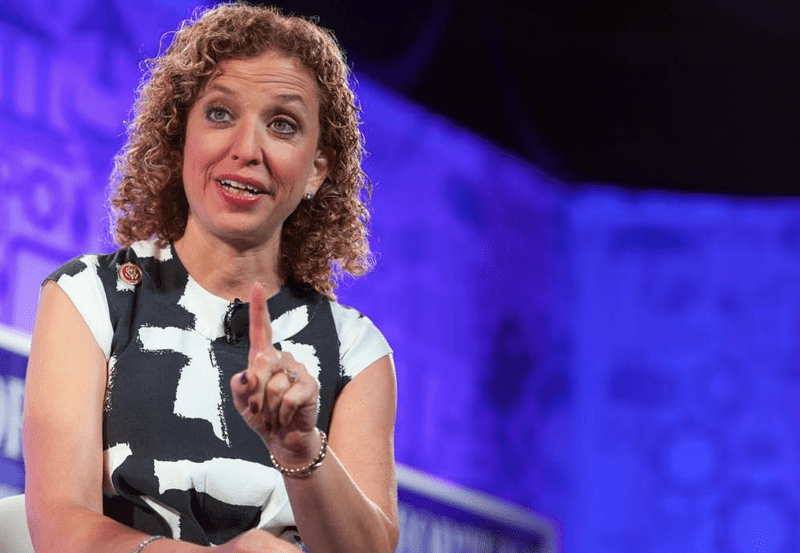I've recently noticed that Debbie Wasserman Schultz, chair of the Democratic National Committee and a Florida representative, stands in opposition to medical-marijuana adoption in Florida, but 58 percent of the state voted in support of a 2014 medical-marijuana bill. Florida requires a 60-percent majority to pass the bill, so widespread medical marijuana is not legal yet in this state. Even though I know medical marijuana can treat a wide range of conditions, Florida only permits limited use for cancer patients and those with epilepsy and Lou Gehrig's disease. These medical marijuana users are restricted to a single strain called Charlotte's Web, which is administered as a low-THC cannabis oil. The issue goes up for a vote again in November 2016, according to the Observer, but Schultz is taking measures to prevent the bill from passing again.
Debbie Wasserman Schultz's Position on Marijuana
Schultz holds a position that marijuana dispensaries over-prescribe and over-treat patients. She used the term "pill mills" to describe dispensaries during her opposition to the 2014 Florida bill. She has a strong belief that legalizing "mind-altering" substances such as marijuana lead to further drug use. Sun Times reports Schultz is worried about a "huge heroin epidemic" in Florida, but I've found no evidence supporting this claim. She says she felt bothered by the drug culture she encountered where she grew up in Long Island. However, I discovered that Schultz grew up in an affluent neighborhood in the region, so the basis of her life experience is uncertain.
Still, she avoided questions asking why she was not opposed to opiate-painkiller prescriptions on the same grounds. I see the gateway theory frequently used by opponents of medical marijuana, but science has debunked this position since 1999. A Congress report found no link between marijuana use and harder drug use. However, there is a strong link between opiate-painkiller prescriptions and moving into harder drugs. These painkillers can lead to addiction, many negative medical side effects and a tendency to try drugs such as heroin.
Schultz receives significant campaign contributions from alcohol companies, according to High Times, such as Bacardi USA and Southern Wine and Spirits. Alcohol and tobacco companies are strongly opposed to marijuana legalization and decriminalization, based on perceived revenue loss. These contributors may influence Schultz's position on medical marijuana. She stands in opposition to many other Democrats on this matter, which has led to some confusion about her motives.
The Benefits of Medical Marijuana
Medical-marijuana access can bring many benefits to Florida residents if the 2016 bill gains approval. HelloMD conducted a survey to find out how medical-marijuana patients benefited from legalization. The typical conditions treated with marijuana include anxiety, stress, insomnia and chronic pain, but many conditions respond well to this treatment method. In fact, 84 percent of patients reported improvements in their symptoms and had limited negative side effects. Patients mentioned beneficial side effects, such as better moods and sleep, compared to using other treatment options.
Other medications used to treat these conditions often come with many detrimental side effects, such as nausea, dizziness, mood swings and constipation. Non-medical marijuana patients sometimes face a situation where they're taking a primary medication to treat a problem; then they take supplementary medication to manage the many side effects. Medical marijuana's lack of negative side effects helps avoid this situation and helps patients achieve positive medical outcomes.
One of the biggest benefits of treating chronic pain and other pain conditions with medical marijuana is the decrease of pain-killer related deaths. Opiate painkiller overdoses kill 44 people daily, but cannabis has not caused any overdose-related deaths.
Ways Florida Voters Can Support Medical Marijuana
The next medical-marijuana bill goes on the Florida ballot in November 2016 as Amendment 2. I recommend Florida voters take several steps to grow support for the medical-marijuana amendment so that it passes into law. Opponents of the amendment such as Schultz put considerable effort into preventing medical-marijuana adoption, but here are some ways that voters can get more attention and support:
Showing up to vote for Amendment 2 is one of the most important ways to support medical marijuana in Florida. Voter turnout may be higher than average due to the Senate race, so every vote counts. Another way Florida voters can help is by contributing to medical-marijuana campaigns helping to build awareness on the benefits and advantages of legalization. United For Care is one such organization building support for Amendment two in Florida.
Florida voters with the time to volunteer can help these organizations with more hands-on methods like collecting petitions, getting on the phone to build support and encourage voting, staffing medical-marijuana awareness events, doing door-to-door canvassing or assisting in administrative work. Voters can also write to their representatives to find out their medical-marijuana positions and learn whether they're for or against the measure.
Medical marijuana treats many conditions that currently require medication with opiates or prescriptions with many negative side effects. More states are legalizing marijuana and taking advantage of the benefits it brings to patients. Florida has another chance to pass a medical-marijuana amendment in 2016, but it requires voter effort to overcome opposition by Schultz and others standing against the bill. She's on the wrong side of the issue, but I know the popular vote can change the medical-marijuana landscape in this state.
